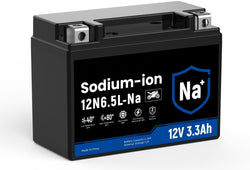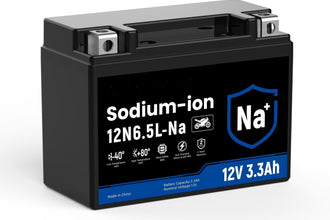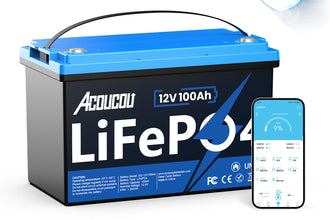

Lithium batteries have become ubiquitous in modern life, powering everything from smartphones to electric vehicles and energy storage. However, concerns about battery leaks and safety have also been raised in recent years, particularly with the rise of lithium-ion batteries.
Do Lithium Batteries Leak?
The short answer is yes, lithium batteries can leak. However, the risk of leakage is relatively low compared to other types of batteries. Lithium batteries use a non-aqueous electrolyte, which is less prone to leaking than the aqueous electrolytes used in other battery chemistries. Additionally, most lithium batteries are designed with robust casing and safety features to prevent leaks and other hazards.
Why Do Lithium Batteries Leak?

- Physical Damage:Physical damage to the battery casing, such as punctures, dents, or cracks, can compromise the integrity of the battery and lead to electrolyte leakage. Mishandling during transportation or installation, as well as accidental impacts, can result in structural damage to the battery.
- Overcharging:Overcharging a lithium battery can cause the battery to become overheated, leading to thermal runaway and potential rupture of the cell. This excess pressure inside the battery can force the electrolyte to leak out.
- Exposure to Extreme Temperatures:Exposure to extreme temperatures, particularly high heat, can cause the internal components of the battery to expand and contract, potentially leading to damage and leakage of the electrolyte.
- Manufacturing Defects:In rare cases, lithium batteries may have manufacturing defects that compromise the integrity of the battery casing or the quality of the internal components. Such defects can make the battery more prone to leakage under normal operating conditions. Therefore, The quality of the battery and the manufacturer are also important.
- Age and Degradation:As lithium batteries age, their internal components can degrade, potentially leading to a breakdown of the separator between the positive and negative electrodes. This degradation can increase the risk of electrolyte leakage over time.
- Contamination:Contamination of the battery with foreign materials or substances can lead to chemical reactions that compromise the integrity of the battery casing or the stability of the electrolyte, potentially resulting in leakage.
How to Check for Leaks in Lithium Batteries?

- Visual Inspection:Carefully examine the exterior of the battery for any signs of physical damage, such as dents, punctures, or cracks. Inspect the battery casing for any abnormalities, including bulges or deformities.
- Check for Discoloration:Look for any discoloration or staining on the battery casing, particularly around the seams or edges. Leakage from a lithium battery may manifest as a dark or discolored residue on the surface of the battery.
- Odor:If you detect an unusual odor emanating from the battery, it may be an indication of electrolyte leakage. A strong chemical smell or an odor of solvents may suggest that the battery has leaked.
- Examine the Terminal Ends:Inspect the terminal ends of the battery for signs of corrosion or unusual residue. Any abnormal buildup of material on the terminals could be indicative of a leak or other issues.
- Test the Battery Performance:If the lithium battery is installed in a device, monitor its performance. Signs of decreased battery life, erratic behavior, or unexpected shutdowns may be indicative of a battery leak affecting its function.
How to Tackle a Leaking Lithium Battery?
- Personal Protection:Before handling the leaking battery, ensure that you are wearing appropriate personal protective equipment, such as gloves and safety goggles, to shield yourself from direct contact with the leaked electrolyte.
- Ventilation:Work in a well-ventilated area to minimize exposure to any fumes or vapors that may be emitted from the leaking battery.
- Isolate the Battery:If the leaking battery is installed in a device, carefully remove it from the device using protective gloves. Place the leaking battery in a non-flammable, secure container to prevent any further leakage.
- Avoid Skin Contact:Do not touch the leaked electrolyte with your bare hands. If skin contact occurs, wash the affected area thoroughly with soap and water.
- Dispose of the Battery Safely:Once the leaking battery has been isolated, it should be disposed according to local regulations for hazardous waste disposal. Many jurisdictions have specific guidelines for the safe disposal of damaged or leaking batteries. Contact your local waste management authority for guidance on proper disposal procedures.
- Clean the Area:If the leaked electrolyte has come into contact with surfaces, clean the affected area with appropriate cleaning agents and dispose of any contaminated materials according to safety protocols.
- Seek Professional Assistance:If you are unsure about how to safely handle a leaking lithium battery, or if the leak is substantial, seek assistance from qualified professionals, such as hazardous materials handlers or emergency response personnel.
Why is LiFePO4 battery the least prone to leakage?

- Electrolyte Stability:LiFePO4 batteries use a solid electrolyte, which is inherently more stable than the liquid electrolytes found in other types of lithium batteries. The solid electrolyte significantly reduces the risk of leakage, even under extreme conditions.
- Thermal Stability:LiFePO4 batteries are known for their excellent thermal stability, which minimizes the risk of overheating and thermal runaway. This feature helps prevent the breakdown of internal components and mitigates the potential for electrolyte leakage.
- Structural Integrity:The structural design of LiFePO4 batteries contributes to their resistance to leakage. The sturdy construction and robust cell packaging help contain the electrolyte securely, reducing the likelihood of leaks due to physical damage. Acoucou uses metal case to reduce damage to the battery due to vibrations, collisions, etc.
- Chemical Inertness:The materials used in LiFePO4 batteries exhibit high chemical inertness, making them less prone to chemical reactions that could lead to electrolyte degradation and leakage.
- Safer Chemistry:Compared to other lithium battery chemistries, such as lithium cobalt oxide (LiCoO2) or lithium nickel manganese cobalt oxide (NMC), LiFePO4 chemistry is considered safer and less prone to thermal runaway, which helps minimize the risk of leakage.
Choose the Best Lithium ion Battery

Due to the stability of LiFePO4 batteries, they have become popular products in fields such as energy storage and automotive batteries. At the same time, the quality of the battery also determines its safety and lifespan. Acoucou is dedicated to creating high-quality, A-grade lithium iron phosphate batteries. All our supply chains are very transparent and we cooperate with TOP companies. You get all the juice down to the last drop. We use the most advanced BMS to manage the batteries and ensure the safety. 7-year warranty is provided that you can use at ease.











